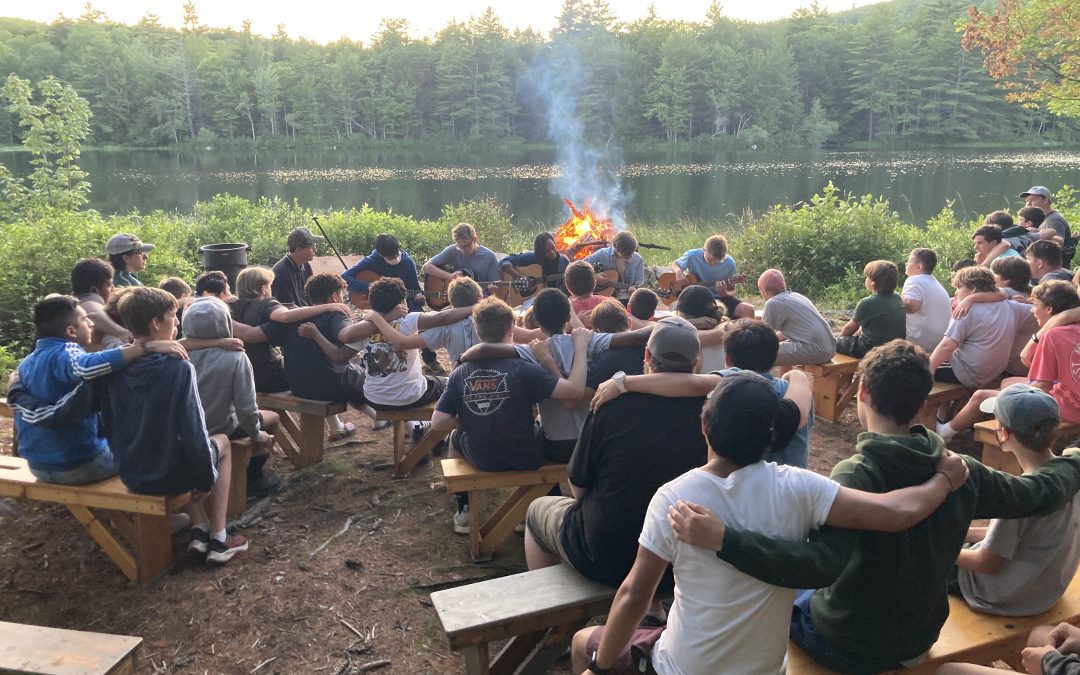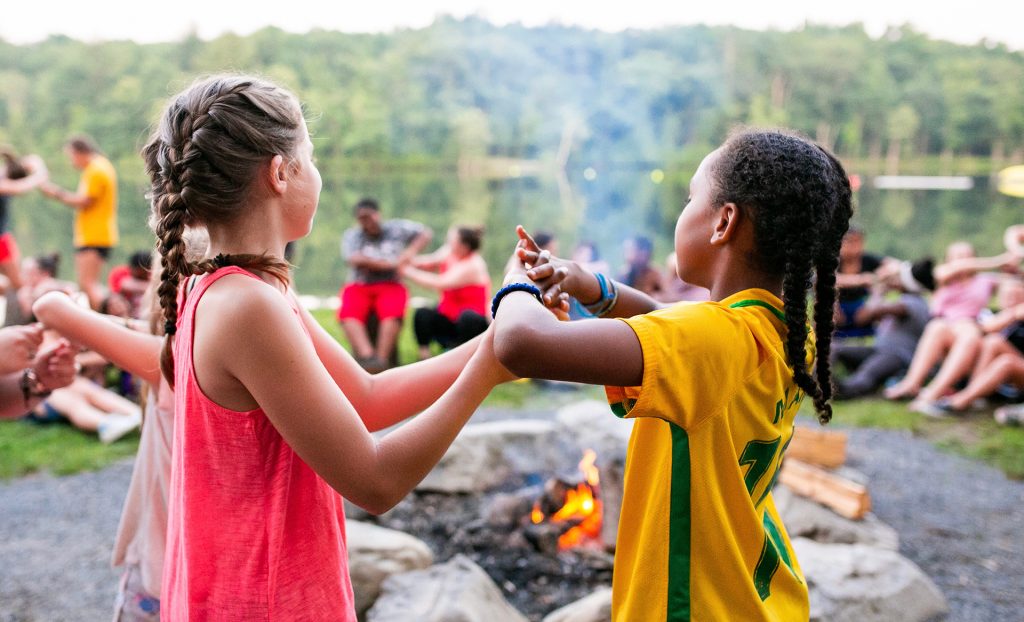Competition at Camp – Join our Conversation!
When it comes to kids and competition, it seems that there are about as many opinions as there are people willing to discuss it. For some, competition is the necessary ingredient for improvement and so success – and for others, it’s just a source of unnecessary stress that can take away from the fun. Often parents are looking for the perfect amount of it. “We’re looking for sporty, but not too competitive,” is something that we hear frequently at Camp Specialists from prospective camp parents. What makes “competition” such a hot topic? What in fact does competition at camp look like these days? Is competition all about sports? Camps have never been “one size fits all,” so we reached out to a diverse group of camps to further the conversation and gathered a range of viewpoints. Here are some highlights from those conversations.
Something for Everyone
“If you want to be a traditional camp these days, you have to offer something for everyone, and meet the needs of those who want more, but still want a traditional camp,” says Colleen McGourley, an Assistant Director and Girls Head Counselor at a co-ed camp, on the subject of competition. McGourley has been at camp since 1998 and has experienced first-hand the evolution of competition at camp. “Back in the day, kids just played sports,” says McGourley. These days, it’s much more nuanced and tailored to meet the needs of all sorts of campers. For those who are less interested in competition, the camp’s normal schedule provides exposure to many sports, along with the arts and the waterfront. For the camper who wants a little bit more, specialty periods during the day allow for more instruction in a given sport, like baseball or soccer, for example. Intercamp games, played against other local teams during the day, also provide an outlet for those looking for more competition – and the camaraderie and spirit that go with it. And then there is the camper who has chosen this traditional camp over a specialized sports camp, but still needs to keep up their skills with advanced training over the summer. These campers benefit from private lessons, organized with the input of their coaches from home, so that specific skills can be honed over the weeks away at camp. Sometimes these lessons are geared towards fitness in order to be ready for the fall season. These athletes also have the option of playing in a league. The league runs all summer for all grades and is an additional opportunity for those who want to be on a team. The kids have to try-out and then they train and compete together at a higher level. This option is ideal for those who really want to continue going to camp and being with their friends, but need the extras – this way they don’t have to go to a specialty camp or stay home to train, and miss all the fun that camp has to offer. Says McGourley, “It means juggling a lot of different needs, but making a lot of different campers happy.”
Competition and Grit
Speaking with Michael Marcus, an Owner/Director at an all-boys camp, was an insightful lesson in psychology and the deeper meaning of “competition.” A camp with a “competitive” reputation, our conversation revealed a measured and deliberate approach that they have crafted over the years. According to Marcus, parents often mistake “being the best” as a confidence booster, and so, a key to success. They shy away from competition or situations where their children might not be number one. At their camp, the goal is to help kids improve long-term, it is about the process and growth and not the winning. “A camper who is always the best at something is not going to improve – parents should be seeking out opportunities for their child to be pushed, not to just be ‘the best at something.’” He says that competition is just a metaphor for getting out there and improving in order to build confidence and grit. “Campers who have confidence and are improving are more willing to take risks and will continue in their endeavors,” says Marcus. They need to fail and build mental toughness, and not just feel good about winning. “Building grit means losing a lot and dealing with it. Being the best all the time is not a way to learn grit and be able to grow as an athlete.” He added that for some parents, the fear of competition robs their children of the chance to be good, because you need to know where you are in order to move forward, it’s not in a vacuum. He also mentioned that anything can become competitive given an atmosphere that promotes it. The right camp will keep the balance and not let everyone go over the top, in terms of either sports or social behavior, etc.
Meeting Individual Needs
A conversation with Emily Courtiss, Owner/Director of an all-girls camp, highlighted a tailored version of competition at camp. She related that historically, her camp’s image as a “competitive” all-girls camp was in large part due to their top-notch facilities, but not to any particular philosophy or program. While the facilities still attract top athletes, our conversation centered around what they do to meet all campers where they are, and what they hope is a well-balanced approach. Their guiding principle is providing individual camper choice from an early age, tailoring a child’s schedule to their individual needs, so that there is something for everyone at camp. They want each girl to reach their personal highest level of skill in their area of interest, but those interests are not just sports-oriented. Their approach is centered on cherished camp traditions, such as Olympics, that take place throughout the summer and are built into the schedule. During Olympics, campers participate in a whole range of activities which Courtiss says can often help those who usually shy away from a particular activity. Competition for Olympics also means gaga, archery, or dance. Their hope is that any girl could feel at home at their camp. Courtiss says of competition, “It’s not about winning or losing, but being a good and supportive teammate and trying your best.”
Finding Where You “Shine”
Adam Weiner, Director of a co-ed camp, had this advice for parents: “Look for a camp where your kids can shine at whatever they are into – find the camp that offers the activity that will help you do that.” At his camp, they offer opportunities throughout the summer for a camper to show their skills that go beyond tennis or basketball or the usual sports. Weiner describes it as a “participatory” camp, where campers are expected to participate in all of the activities. There are no try-outs for teams and no cuts, everyone gets the chance to play if they want to. He added that, “we play to win, but everyone is on a team who wants to be there.” There are leagues that play all summer in a variety of sports, and there are competitions that have nothing to do with sports. They offer a camp version of “Survivor”, singing competitions, art events, and more.
At Camp Specialists, we love providing insights but would love to know more about what you think. How do you feel about competition? Follow us on Instagram or Facebook and let us know!


